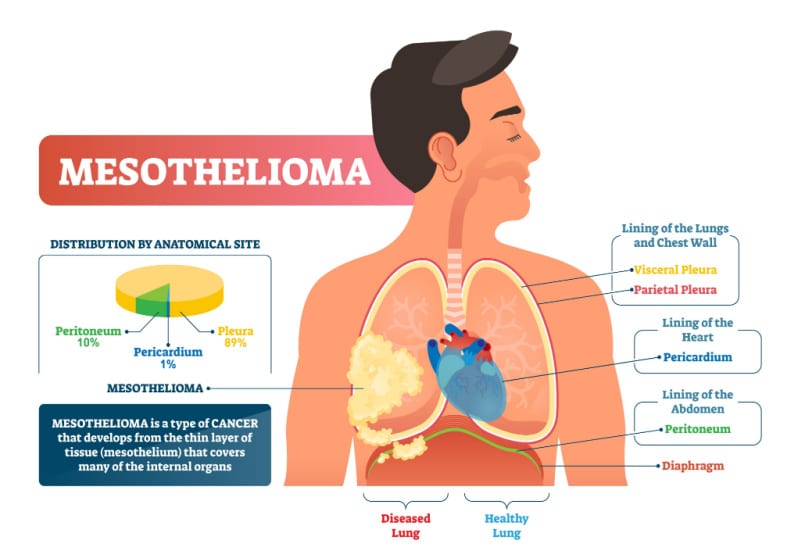What is Mesothelioma?
Mesothelioma is a rare form of cancer affecting the mesothelium, the lining that forms around most of the body’s internal organs. There are two common kinds of mesothelioma; pleural mesothelioma – affecting the chest area; and peritoneal mesothelioma – affecting the abdominal area. Pleural mesothelioma has been linked to exposure to asbestos, especially at the workplace. It is also possible to have mesothelioma affecting the heart and testicles, but these are more rare forms.
Qualifying For Disability Assistance

There are two ways that the Social Security Administration determines disability for purposes of disability assistance. To show that you are disabled, you must:
1. Satisfy the requirements of a condition in the Social Security Administration’s Listing of Impairments, a manual listing qualifying diseases and what is needed to qualify under each one; or
2. Show that your disability equals a condition in the listing even if the condition itself is not listed, by showing that you are unable to work or carry on daily living activities due to the condition.
Mesothelioma is listed in the Listing of Impairments under section 13 for malignant neoplastic diseases, and subsection 13.15 for pleural or mediastinal diseases. Under this listing, the Social Security Administration considers the following factors in determining disability:
- The malignancy’s origin;
- The duration, frequency, and response to surgery, radiation, chemotherapy, hormone treatment, immunotherapy, or bone marrow or stem cell transplantation, all for treatment rather than diagnosis; and
- The effects of any post-therapeutic residuals in the patient.
The Social Security Administration will consider your condition as a disability until about 3 years from the onset of your complete remission. For other conditions, the period maybe 18 months.
What evidence do I need to provide?
To show evidence of your condition, you have to provide medical evidence specifying the primary site affected by the cancer, the type and extent of the lesions, and whether or not the lesions are recurrent. If the primary site cannot be determined, the Social Security Administration then evaluates the lesions under a different subsection of the same listing.
If your treatment includes operations, such as a biopsy or a needle aspiration, you have to provide copies of the operative note as well as the pathology reports. When these forms of evidence are not available, the Social Security Administration looks to all other medical evidence such as summaries of hospitalizations, other surgical or pathological findings and reports of response to treatment.
Using an Attorney to Make the Application
Even if you meet the above requirements, it is not a certainty that your case will be approved. You may still undergo further evaluation. You may choose to proceed with the initial application alone; however, most first time applicants are denied disability assistance and have to reapply multiple times to be approved. An attorney can help you ensure that you present a strong case for approval.
In most cases, you will most likely need an attorney to present any appeals that may be needed in the event of a denial, due to the complicated nature of the process. If you do satisfy the criteria of the listing however, you should work with your physician to develop the necessary medical evidence needed for your case.
